Language evolves like a biological creature, but linguistic progression occurs more rapidly than natural development. The vernacular of our parents’ generation is already greatly removed from today’s slang words, and texts from a few years ago could be considered “fossil records” by etymologists who study the origin of words to gain cultural insight.
Examining the history of our language uncovers the hidden meanings behind words we all hear on a regular basis. Many popular sayings have surprisingly interesting roots and some of the best old timey slang fell out of vogue far too soon.
Every year, new words, phrases, and slang terms enter the global dialogue. While some popular sayings come and go without much fuss, certain buzzwords manage to capture public attention and the general zeitgeist of an era.
The current political climate has given birth to countless notable buzzwords, but many seemingly modern idioms have surprisingly lengthy backstories.
1. People Were Called “Snowflakes” Because Of Their Political Beliefs Way Back In 1860
The derogatory use of the term “snowflake” has traditionally been employed by the political right to describe the apparent easily-offended nature of those who lean politically left. However, it has recently been reclaimed by liberals in the wake of Trump era politics.
Regardless of who is being insulted, the term’s wielders would probably be surprised to learn the practice of calling someone a “snowflake” because of their political beliefs dates back to Civil War era America.
The saying originated in 1860s Missouri, where people who opposed the abolition of slavery were dubbed snowflakes as a reference to their apparent preference for white skin. However, the modern iteration of the jab appears to have been inspired by a line from Fight Club.
2. People Have Been Staying “Woke” For More Than 50 Years
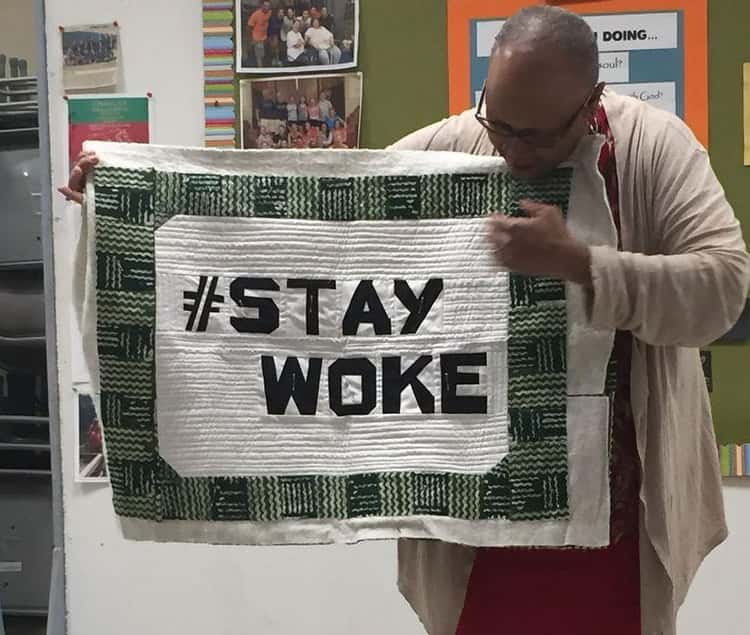
In 2018, the word “woke” is commonly seen in hashtags, and even received a reference in Childish Gambino’s “Redbone.” While these modern applications might lead some to believe the term is a recent invention, being woke has held the same meaning in some circles for more than 50 years.
A 1962 New York Times article by William Melvin Kelley entitled “If You’re Woke, You Dig It” included a glossary of African-American slang, which defined woke as “well informed, up-to-date.” In 2018, it’s used in more-or-less the same way, albeit often ironically.
3. “Salty” Has Described Irritancy Since The ‘30s

In the modern discourse, calling someone salty means they’re easily annoyed or looking for a reason to become irritated. The word has been used to describe angry individuals since at least 1938, and the term was most likely first being applied to sailors, who have a reputation for both irritation and literal saltiness.
Few could have predicted the term’s longevity, or its contemporary status as a go-to message board buzzword.
4. People Have Been Called “Social Justice Warriors” For Decades
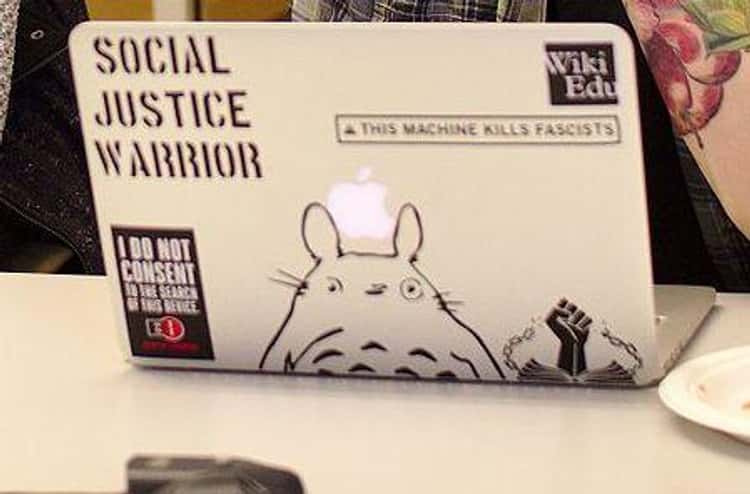
Despite the seemingly positive connotations of fighting for social justice, the term “social justice warrior” is often used as a pejorative in the 2018 political climate. Oxford Dictionaries defines the phrase as “a person who expresses or promotes socially progressive views,” but that’s not the definition the Alt-right ascribes to.
In certain corners of the internet, the term social justice warrior – commonly abbreviated to “SJW” – denotes people who allegedly seek out reasons to be offended so they can be a part of “victim culture,” and who support causes only so they can “virtue signal,” or demonstrate their inherent moral goodness.
The criticisms made against SJWs are subjective to say the least, but the term undoubtedly started out as a compliment. The first documented appearance came in 1991 when it was used to describe a popular Quebecois union activist.
The term wasn’t considered a pejorative until the mid-2010s when Alt-right internet activists decided social justice had gone too far.
5. “Fake News” Dates Back To At Least 1672

The practice of spreading false news stories has been an issue for as long as news has been reported. However, Donald Trump made the specific phrase “Fake News” (capitalization and all) a major political buzzword during his successful campaign for the US presidency in 2016.
Trump claimed he invented the term, but it actually has a history of being used to quiet political dissent dating back nearly 500 years.
In 1672 Britain, King Charles II proclaimed his intent “to restrain the spreading of false news” out of concern that anti-monarchical dissent was circulating in coffee houses, and the strategy has been part of the political playbook ever since.
6. Political Pundits Have Talked Of “Draining The Swamp” Since 1903
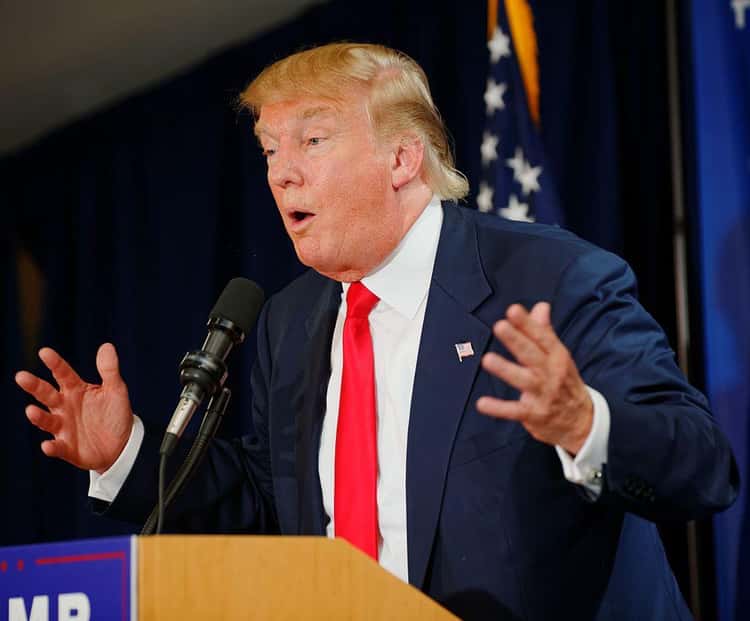
One of President Trump’s main catch-phrases on the 2016 election trail was his promise to “drain the swamp.” Trump actually explained his introduction to the phrase, recalling:
They had this expression ‘drain the swamp.’ And I hated it, I thought it was so hokey. I said, ‘that is the hokiest, give me a break, I am embarrassed to say it.’ And I was in Florida where 25,000 people were going wild, and I said, ‘and we will drain the swamp’ — the place went crazy… every time I said it I got the biggest applause. And after four or give times I said, boy what a great expression, I love saying it, it’s amazing.
Unsurprisingly – given the frequently repeated untruth that Washington is built on a swamp – politicians have been using swamp-draining metaphors for more than a century.
The first documented usage belongs to Winfield E. Gaylord, who wrote in 1903, “Socialists are not satisfied with killing a few of the mosquitoes which come from the capitalist swamp, they want to drain the swamp.”
7. Republicans Have Been Derided As “RINOs” Since 1992
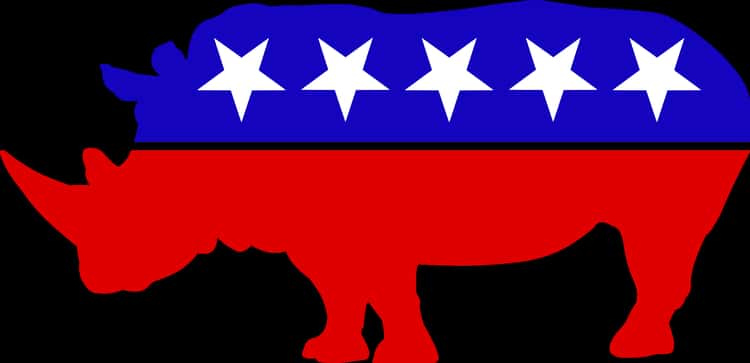
The acronym of RINO, or “Republican In Name Only,” is a witty way to denote a right wing politician who steps out of line with the general Republican consensus. While acronym-related monikers seem like an advent of the internet era, this particular abbreviation has been around for more than 25 years.
Joe DiStaso first used it in a 1992 The Union Leader article, wherein he claimed, “The Republicans were moving out and the Democrats and ‘RINOs’ were moving in.” DiStaso helpfully included an explanation of the term in brackets, and it’s been used in much the same way ever since.
8. “Antifa” Got Its Start In Post-WWII Germany

As the United States government has veered closer to what some consider fascist actions, several prominent political protests have been visited by a group known as “Antifa.”
Although it has always been more of a loose activist movement than an actual organization, the Antifa label – which is short for anti-fascist or anti-fascism – has been around since the end of World War II.
The movement first sprang up in Germany during the immediate aftermath of the second world war. Some locals were determined to stop fascism from returning to their country, and put forth messages of socialism in the face of total societal breakdown.
Since then, the loose affiliation has returned to do ideological battle wherever local activists have felt fascism rearing its ugly head.
9. The “Alt-Right” Has Existed By Name For More Than A Decade
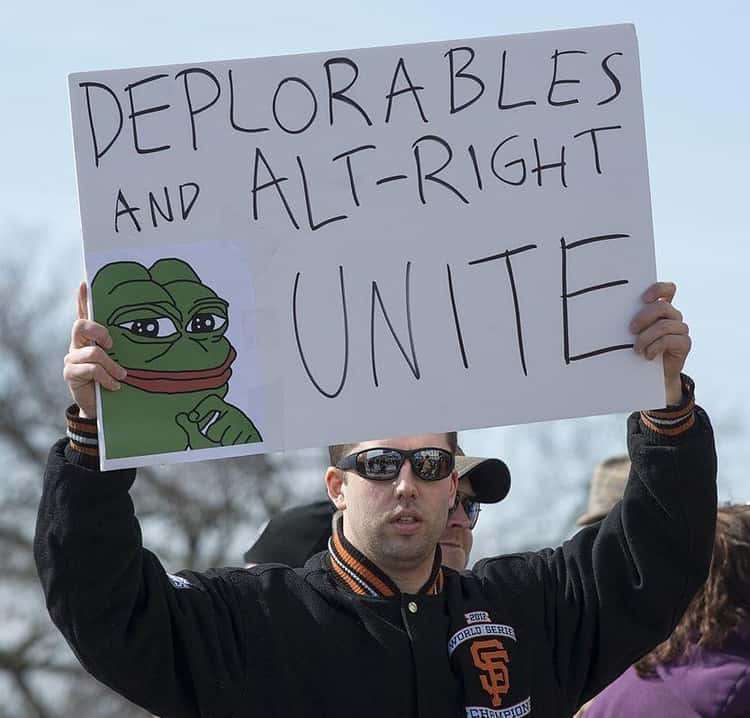
The 2016 election and subsequent political climate has been dominated by the presence of the small yet influential Alt-right; a group that has, for many, seemingly come out of nowhere.
When white nationalists caused violence that shook Charlottesville, VA, in 2017, the Alt-right had already existed by name for almost a decade. Noted “paleoconservative” Paul Gottfried first mentioned the “alternative right” in a 2008 address that was later published under the title “The Decline and Rise of the Alternative Right.”
From there, the term was popularized on the internet and eventually became a generally accepted label.
